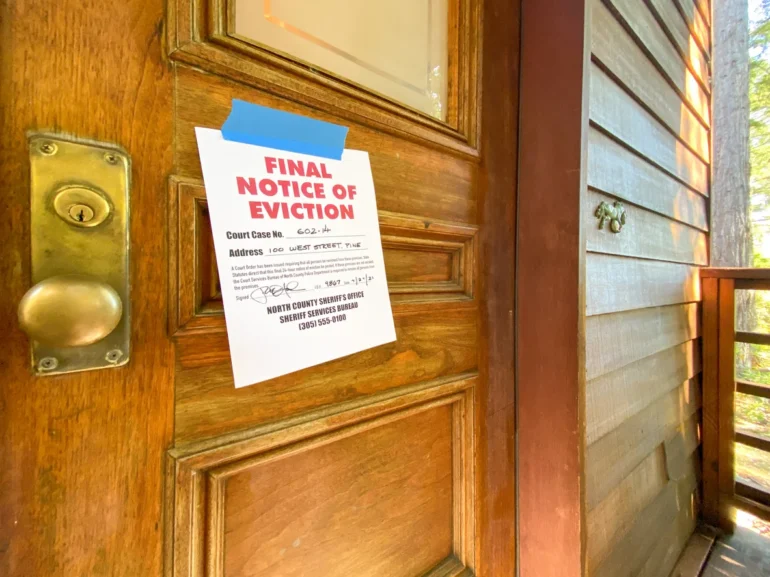
The relationships you have with your tenants can have a direct impact on your life as a landlord. Ideally, you want happy tenants who are satisfied with the home they live in and how you manage their needs. This can be easier said than done, but it’s crucial for maintaining your rentals.
Happy Tenants Tend to Sign Longer Leases
When tenants are happy with the house they live in, they’re more likely to renew their leases for longer durations of time. For instance, a tenant might start out signing a one-year lease and renew for two more years, especially if you offer them a discount for their commitment.
Having long-term tenants is ideal because it reduces the time and money you have to spend finding new tenants and eliminates the problem of costly vacancies between tenants.
Happy Tenants Usually Take Better Care of Their Homes
It’s shocking to see how some people live, but not everyone takes good care of their homes. Usually, when a tenant is happy with where they live, they’re less likely to cause damage from being careless and are even less likely to intentionally destroy your property.
You can increase your standards for tenants to weed out less desirable options, but part of creating satisfied tenants requires being a good landlord. This means returning their phone calls, handling emergencies fast, and taking care of maintenance and repairs to ensure their safety and comfort.
Resentful Tenants Are More Likely to Damage Your Property in Retaliation

Sometimes tenants become bitter and resentful toward their landlord and end up damaging the property in retaliation. This can cost you thousands of dollars in repairs, legal battles with a tenant, and postpone your ability to rent the property to a new tenant.
Things that can make a tenant resent their landlord:
- Being ignored
- Lease changes that feel retaliatory
- Being evicted, whether or not it’s justified
- Landlords who take too long to fix critical appliances, like water heaters, refrigerators, and stoves
- Landlords who refuse to make important repairs
- Landlords who don’t know service animal laws
- Rent raises that seem unreasonable
- Extremely restrictive rules
These are just some of the things that can create a rift between you and your tenants. Hopefully, you do everything in your power to provide a safe and comfortable home for your tenants and you can avoid these situations.
Tenants Who Feel Disrespected Might Not Move Out

Evicting a tenant for a lease violation might be perfectly legal, but that doesn’t mean your tenant won’t feel disrespected. Chances are, if you’re already at the point of eviction, you’ve had issues with your tenant beforehand.
While not all issues are avoidable, and many times it’s the tenant’s fault, sometimes landlords unintentionally create issues that escalate. When evicting a tenant who feels like their landlord has done something wrong, it’s not uncommon for the tenant to stay until the Sheriff physically removes them from the property.
To avoid making your tenants feel disrespected, never get involved in an argument with them. If conversations tend to get heated, communicate only in writing and stick to the facts. Don’t engage in chitchat or casual conversation.
Your Tenants Will Blast You Online

Word of mouth can be a blessing and a curse. While some tenants consider online reviews, it’s the negative blasting on social media that you want to avoid. Even if you make a mistake, if it happens to violate a tenant’s rights, they will gather a large, angry mob and attack you online.
Usually, these situations happen when a landlord doesn’t understand the law and a tenant is just trying to assert their rights. For example, under the Fair Housing Act (FHA), most landlords can’t deny emotional support animals (ESAs), nor can they charge pet rent for an ESA. However, some landlords treat ESAs as pets and won’t even rent to people with an ESA.
Sometimes landlords evict tenants for having a service animal they weren’t told about during the screening process, but since service animals are considered medical equipment, tenants aren’t required to tell their landlords about their service animal or disability.
Landlords who don’t know the law can end up being shamed all over public social media pages and that can tarnish their reputation and ability to find renters. It is crucial that you maintain a good relationship with your tenants who have ESAs and service animals, and always consult an attorney before asserting anything as fact or law.
Tenants Are Your Source of Income
Without tenants, you wouldn’t have income. So treat your tenants well, so they’ll take care of your property and you’ll be generating rental income for many years to come.
